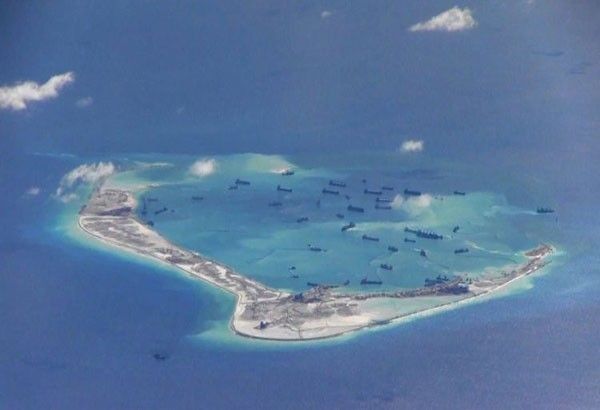Lawmaker pushes measure countering China’s law in WPS

MANILA, Philippines — A House leader pushed yesterday for a measure to counter China’s new law imposing its claims on disputed areas in the West Philippine Sea.
But instead of a measure like China’s law allowing its coast guard to fire on foreign vessels entering disputed waters, the bill filed by Deputy Speaker Rufus Rodriguez seeks to define the Philippines’ maritime areas and territory for China to take notice of such delineation.
Rodriguez urged fellow legislators to support his House Bill 6156, or “An Act declaring and defining the maritime zones under the jurisdiction of the Philippines.”
“I am urging the House leadership to take up and approve the bill which will strengthen our position on the West Philippine Sea. This will counter the Chinese law allowing its coast guard to fire at perceived intruders in the entire South China Sea, which illegally includes our West Philippine Sea,” Rodriguez said.
His proposed definition of the country’s maritime territory includes the Chinese-occupied Scarborough or Panatag Shoal off Zambales and Pangasinan, locally known as Bajo de Masinloc, a traditional fishing ground of Filipinos.
The Chinese Coast Guard routinely patrols this area, which Beijing seized in 2012 after a standoff between Chinese and Philippine Coast Guard vessels.
Filipino fishermen have expressed fears they might be fired upon by Chinese patrols.
The Department of Foreign Affairs (DFA) has protested the enactment of the Chinese law allowing its Coast Guard to fire on foreign vessels in the South China Sea, including the West Philippine Sea, which it claims as part of its territory.
In HB 6156, Rodriguez said the Philippines, as a signatory and party to the 1982 United Nations Convention on the Law of the Sea (UNCLOS), “recognizes the establishment of various maritime zones and jurisdiction of coastal states, including its own, over which sovereignty and appurtenant sovereign rights can be exercised.”
“Thus, the country exercises sovereignty over its internal waters, archipelagic waters, territorial sea and airspace over it, as well as its seabed and subsoil in accordance with UNCLOS and other existing laws and treaties,” he said.
He added that the Philippines also exercises sovereign rights over its “contiguous zone, exclusive economic zone and continental shelf, including the right to explore and exploit living and nonliving, organic or nonorganic resources.”
The House leader pointed out that UNCLOS allows party-states to define their maritime territory.
Under the Rodriguez bill, aside from its internal and archipelagic waters and territorial sea, the country’s maritime territory includes its 200-mile exclusive economic zone (EEZ) that is measured from its shoreline and continental shelf.
A large part of the Philippine EEZ is being claimed by China, which has transformed some disputed islets in that area into military installations.
- Latest
- Trending
































